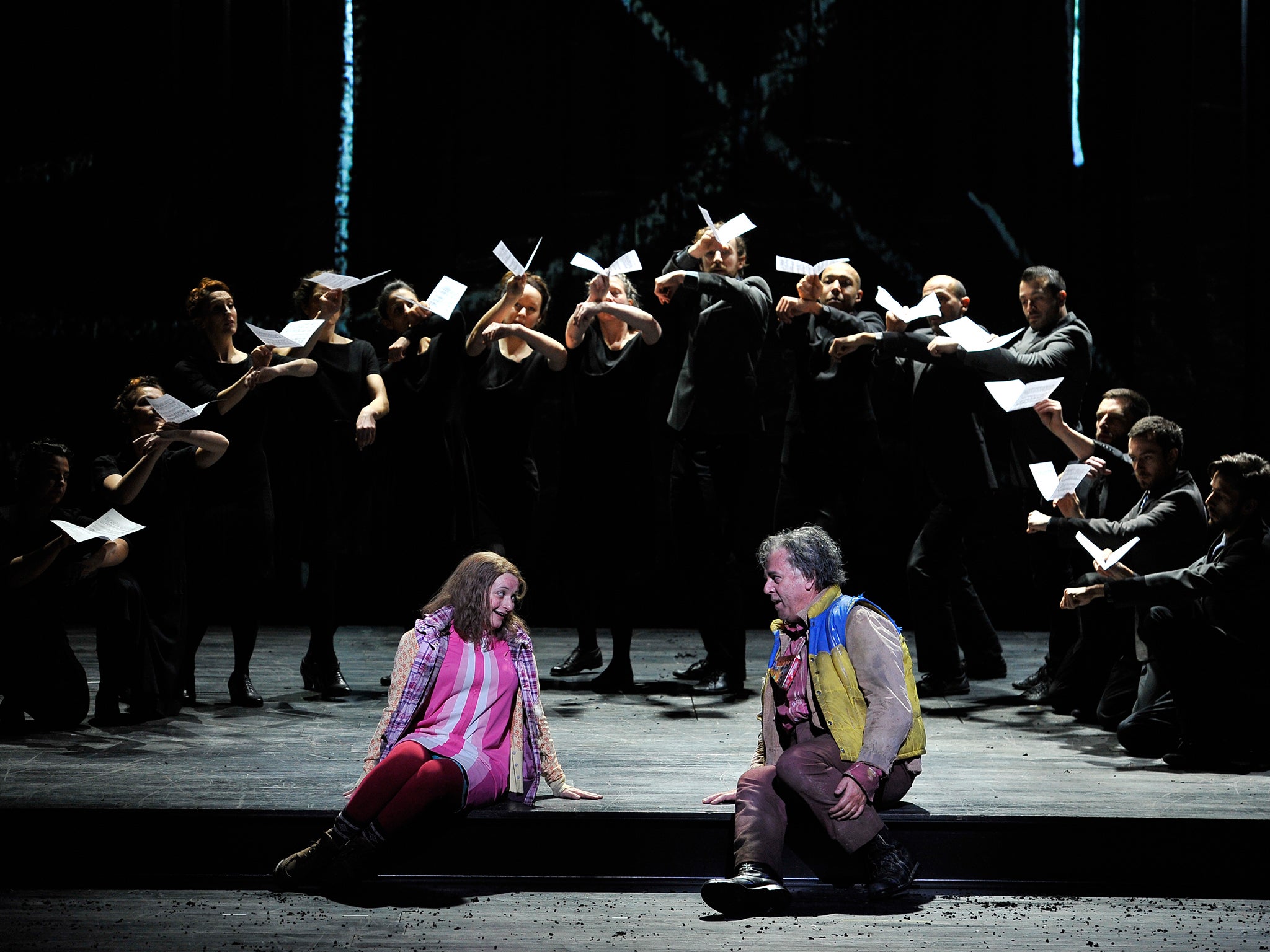The Magic Flute, Coliseum, review: McBurney returns even more brilliant than before
The pervasive references to Shakespeare’s Tempest are entirely justified by the way this drama plays out

Your support helps us to tell the story
From reproductive rights to climate change to Big Tech, The Independent is on the ground when the story is developing. Whether it's investigating the financials of Elon Musk's pro-Trump PAC or producing our latest documentary, 'The A Word', which shines a light on the American women fighting for reproductive rights, we know how important it is to parse out the facts from the messaging.
At such a critical moment in US history, we need reporters on the ground. Your donation allows us to keep sending journalists to speak to both sides of the story.
The Independent is trusted by Americans across the entire political spectrum. And unlike many other quality news outlets, we choose not to lock Americans out of our reporting and analysis with paywalls. We believe quality journalism should be available to everyone, paid for by those who can afford it.
Your support makes all the difference.With the vultures circling round ENO yet again, it was appropriate that James Creswell’s Sarastro should direct his impassioned plea for support not to his fellow-Masons, but directly to the audience in this revival of Simon McBurney’s production. And, presented in shades of grey but bursting with colour and invention, this extraordinary show has now settled in marvellously.
The untamed wildness of the score finds its complement in the staging, with audience and performers in unusually close proximity, with the sound-effects artist presiding wittily in her kitchenette, the flock of doves being suggested by fluttering sheets of paper, and the chalk-drawn (in real-time) imagery morphing into 3D reality on several levels at once: we might be watching a work being created on the spot. The floating and tilting platform on which the singers perilously perch may at times be over-busy, but it does permit some truly magical moments.
The pervasive references to Shakespeare’s Tempest are entirely justified by the way this drama plays out. Peter Coleman-Wright’s Papageno may suggest a sophisticate playing a simpleton, but no praise could be too high for the feisty Three Ladies, the spooky Three Spirits, Allan Clayton’s eloquent Tamino, Lucy Crowe’s sublime Pamina, and Ambur Braid’s brilliantly-conceived Queen of the Night. Mark Wigglesworth conducts with fizzing authority.
Join our commenting forum
Join thought-provoking conversations, follow other Independent readers and see their replies
Comments